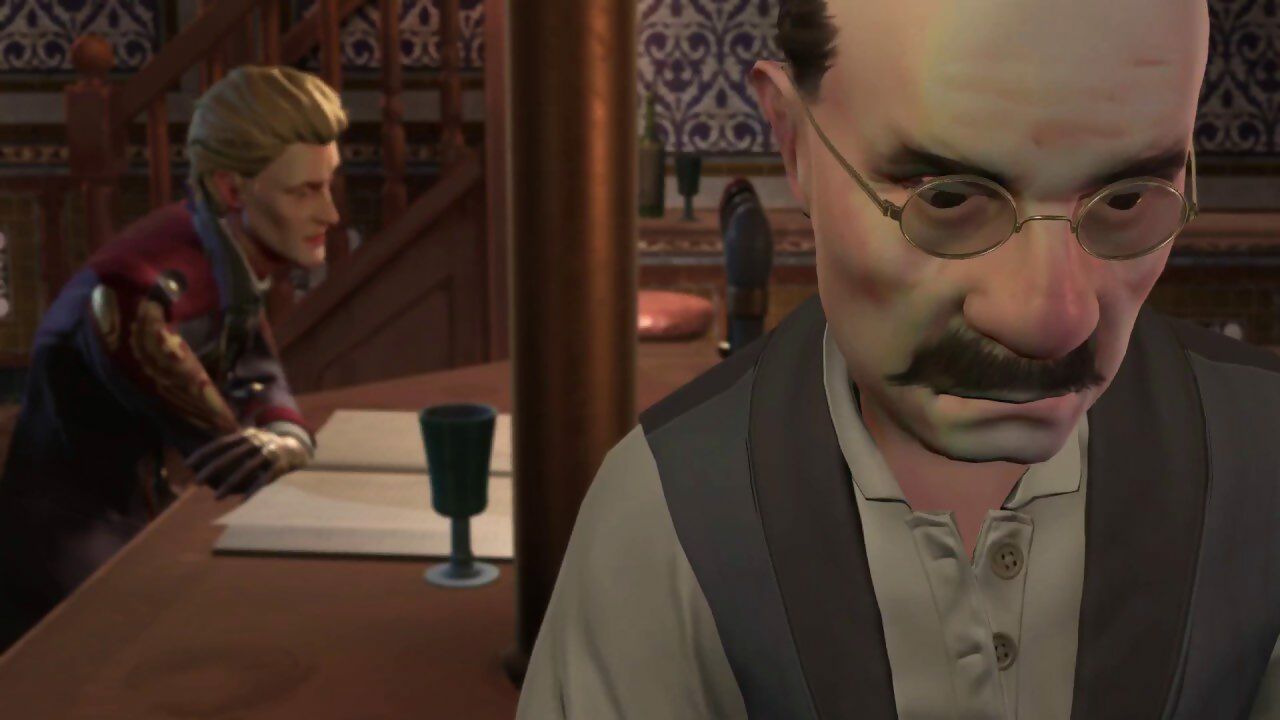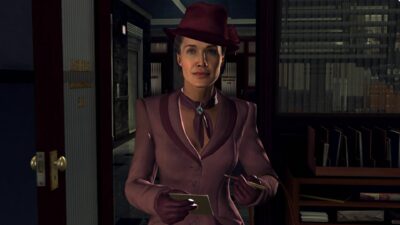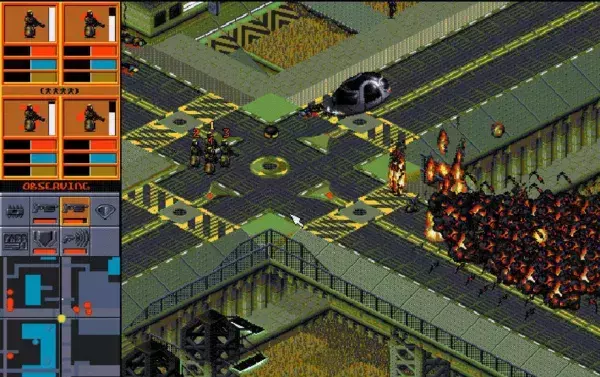
As a collective, game writers happen to be a rather social bunch, which runs counter to the usual writerly stereotypes – the ones where we lounge in a coffee shop all day with a laptop, or sit at home in our dressing gowns, or pace our stylish apartments in the early hours with a steaming mug of coffee. We still do all of those things – we’re just constantly telling one another about it on Slack or Twitter.
As a collective, game writers happen to be a rather social bunch, which runs counter to the usual writerly stereotypes – the ones where we lounge in a coffee shop all day with a laptop, or sit at home in our dressing gowns, or pace our stylish apartments in the early hours with a steaming mug of coffee. We still do all of those things – we’re just constantly telling one another about it on Slack or Twitter.
So, if you are seeking a role in game development that avoids the team-working, hyper-social aspects of the job, then don’t be a writer. A friend told me, half in awe and half in a sort of awe-inspired terror, that she had never seen anything quite like the game writer community. “You guys know everything about everyone. You just talk – constantly.” We do. But that’s all part of the job.

Rebecca Haigh with Salix Games writer Philip Huxley at Pinewood Studios during the making of Dance of Death: Du Lac & Frey.
Joking aside, you’ll spend much of your time networking. It’s vital to be plugged in, as the vast majority of jobs getting thrown your way will be through word of mouth alone. Networking is as much online chatter as it is patrolling events and conferences. It’s coffee dates. It’s Slack debates. It’s making friends. I can’t begin to tell you the amount of work that’s been thrown my way simply because I’m a nice person on Twitter – not because I go to conferences shooting business cards out of a Nerf gun, but because I sit at home in my pyjamas and check up on people every now and again. Being kind, contributing to the community, and generally being a decent person won’t necessarily secure you the work, but it’ll make sure you hear about the work in the first place.
But how do you secure the work? Or, more importantly, how do you get into a position where you’re considered in the first place?
1. BE GOOD
Not just good – brilliant. Bloody brilliant. Writing for games has become its own competitive realm. Gone are the days when written work was an afterthought thrust onto the nearest designer. It should go without saying that you should be a good writer if you want to write for a living.

For Wildboy Studios’ 2D adventure ATONE, Rebecca wrote the dialogue and in-game text.
2. CONSUME
Don’t end your media consumption with what you can get on your PC or console. Having an understanding of the way games have implemented their narrative is hugely important to your own process, but appreciating the way other forms of storytelling deliver their characters and dialogue is vital to your future as a writer for games.
Watch a lot of television. A lot of it. Pay to see your films in the cinema and see how they use space. How is it different from watching it at home? Speaking of space – visit the theatre. Go to an opera. How are people doing Shakespeare differently? How are the performers using the stage and interacting with the audience? What made that particular show on Netflix so popular? How did that crime thriller subvert the usual tropes to make itself memorable?
Lastly – print. Read books. Lots of them. Subscribe to and read magazines. What does a magazine choose to pull out and draw your eye to? I realise this is probably becoming a little bit meta now, so I do apologise. Learn the basics of layout and graphic design, the way designers use grids, then think of this in terms of the way you write. What do you want your player to see? What words jump out at them? I think you get the point.

Du Lac & Fey required a deep dive into Victorian history for its scriptwriting.
3. MAKE
Being a good writer is one thing, but having hands-on experience in game development or interactive fiction is the icing on the cake and the cherry on top. If you’re fresh out of education and new to game development, I suggest seeking out local developers and seeing what extra-curricular activities they have on offer. Facebook is a goldmine for networking groups to help you meet like-minded folks, and it’ll allow you to begin work on something you can call your own. You need to be able to say, “I did that.”
Game Jams happen all the time, and are a great way to join talented communities. The buzz around these events can be amazing. More often than not, you need hands-on experience already if you’re looking to work in game development, so Game Jams are one of the ways you can gain this experience without necessarily having to work for a game company.
It’s important to remember that the life of a freelancer and that of an in-house writer are very different. Both come with their own set of skills, and they’re very much a lifestyle choice that you must work on as much as your craft. Freelancing, for example, takes a regime. It’s important to work without distraction, or your workday ends up bleeding into your personal life. Set a ‘space’ where you work, and close the door on it at the end of the day.
The principles of writing for games remain the same regardless of whether you work from home or in a studio. Your fundamentals are a toolkit you can hone and take with you from job to job, and there are plenty of articles and books to help you with this. These are your oneshots and your barks, your linear versus non-linear dialogue. The lifestyle that surrounds writing for games is what differs from person to person, and this is the advice I wish I’d been given when I first stepped out into the big wide world.
Finally, remember that tea and coffee are your best friend. Invest in the good stuff if you can – you’ll thank me later.

Made by indie developer Snozbot, Fungus is an open-source Unity plugin that allows users to make narrative games without writing code.
GET HANDS-ON
You don’t have to rely on others to help you build your portfolio; some lovely people have designed some free software, so you could make your first game by yourself. For writers, software like Twine and Inkle allows you to develop branching, text-based experiences which are great for creating interactive fiction pieces, or if you want to add another layer to your writing samples. Game engines like Unity are free to download and play in, and so are plugins like Fungus, which make the implementation of text a breeze. All of the above have online documentation and active communities, so if you ever have an issue there’s always an answer to be found somewhere.





